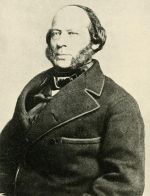This is a section of the book Tallmans In The Civil War. This page covers Andrew German. You can read on, or click here to browse the rest of the book.
Andrew German
Four days after his brother Thomas Andrew age 16 decided to enlist as well. He did this October 18th, 1861 in the same Company also as a Private. According to Civil War records it would appear that brothers Thomas and Andrew were both wounded in the same engagement and were discharged disabled in Cincinnati on July 14, 1862. Andrew, however, re-enlisted on 29 Feb. 1864 and rejoined his unit. He was captured on June 11th, 1864 near Guntown, Miss. and held a prisoner at Andersonville. He was liberated April 15, 1865.
He was also a survivor of the Sultana Tragedy. The S.S. Sultana was a Mississippi River steamboat paddle-wheeler that exploded on April 27, 1865 in the greatest maritime disaster in United States history. An estimated 1,600 of its 2,427 passengers died when three of the ship's four boilers exploded and it sank near Memphis. Under the command of Captain J. C. Mason of St. Louis, the Sultana left New Orleans on April 21, 1865, with 75 to 100 cabin passengers, deck passengers, and numerous head of livestock bound for market in St. Louis. At Vicksburg, it stopped for a series of hasty repairs to the boilers and to take on more passengers. Rather than have a bad boiler replaced, a small patch repair was made to reinforce a leaking area. A section of bulged boiler plate was removed, and a patch of lesser thickness than the parent plate was riveted in its place. This repair took about one day, whereas a complete replacement of the boiler would have taken about three days. During its time in port, men tried to muscle, bribe, and threaten their way on board, until the ship was bursting at the seams with soldiers. More than 2,000 men crowded aboard. Most of the new passengers were Union soldiers, chiefly from Ohio and just released from the Confederate prison camps of Cahawba and Andersonville. The US government had contracted with the Sultana to transport these former prisoners of war back to their homes. With a legal capacity of only 376, it was severely overcrowded. Many of the passengers had been weakened by their incarceration and associated illnesses. Passengers were packed into every available berth, and the overflow was so severe that the decks were completely packed. About 500 survivors, many with horrible burns, were transported to hospitals in Memphis. Up to 300 of them died later from burns or exposure. No exact death toll is known. Estimates range from 1,300 to 1,900. The official count by the United States Customs Service was 1,547. Final estimates of survivors were between 700 and 800. Andrew was discharged disabled on September 11, 1865, and returned home to Sandusky County.
Not much is known of Andrew after his discharge. He died on September 26th, 1866 and was buried in Castalia Cemetery, Erie County, Ohio.
The 72nd Ohio was organized in Fremont, Ohio by Colonel Ralph Buckland in December, 1861. The 72nd left for Camp Chase to train in January 1862, but, in February was ordered to Paducah, KY joining General Sherman where it boarded the steamer Baltic which disembarked at Pittsburg Landing, Tenn and encamped near Shiloh Church. The Regiment took part in the battle at Shiloh and the siege of Corinth. It later moved to Memphis. 1863 found the regiment participating in the Vicksburg campaign. The Regiment re-enlisted in 1864 and returned to service in Kentucky, Tennessee, Mississippi, Arkansas, and Missouri. In February 1865 it joined the Department of the Gulf and served in Louisiana and Mississippi. It mustered out at Vicksburg on September 11, 1865.
SERVICE:
Moved from Paducah, Ky., to Savannah, Tenn., March 6-10, 1862.
Expedition from Savannah to Yellow Creek, Miss., and occupation of Pittsburg Landing, Tenn., March 14-17.
Crump's Landing April 4.
Battle of Shiloh April 6-7.
Advance on and siege of Corinth, Miss., April 29-May 30.
Russell House, near Corinth, May 17.
March to Memphis, Tenn., via La-Grange, Grand Junction and Holly Springs June 1-July 21 (where evidently both Thomas & Andrew were wounded).
Duty at Memphis, Tenn., till November.
Grant's Central Mississippi Campaign, operations on the Mississippi Central Railroad, November 2, 1862, to January 12, 1863.
Duty at White's Station till March 13.
Ordered to Memphis, Tenn., thence to Young's Point, La. Operations against Vicksburg, Miss., April 2-July 4.
Moved to join army in rear of Vicksburg, Miss., May 2-14.
Mississippi Springs May 13.
Jackson, Miss., May 14.
Siege of Vicksburg May 18-Jul 4, Assaults on Vicksburg May 19-22.
Expedition to Mechanicsburg May 26-June 4.
Advance on Jackson, Miss., July 5-10.
Siege of Jackson July 10-17.
Brandon Station July 19.
Camp at Big Black till November.
Expedition to Canton October 13-20.
Bogue Chitto Creek October 17.
Ordered to Memphis, Tenn., and guard Memphis & Charleston Railroad at Germantown till January, 1864.
Expedition to Wyatt's, Miss., February 6-18.
Coldwater Ferry February 8.
Near Senatobia February 8-9.
Operations against Forest in West Tennessee and Kentucky March 16-April 14.
Defense of Paducah, Ky., April 14 (Veterans).
Sturgis Expedition to Ripley, Miss., April 30-May 2.
Sturgis Expedition to Guntown, Miss., June 1-13.
Brice's Cross Roads, near Guntown, June 10 (where Andrew was captured).
Copyright © 2013 Jon L. Tallman, all rights reserved
Next: Isaac German and Orville Tallman
Previous: Silas, David, and Thomas German
American Civil War Story - Home







New! Comments
Have your say about what you just read! Leave me a comment in the box below.